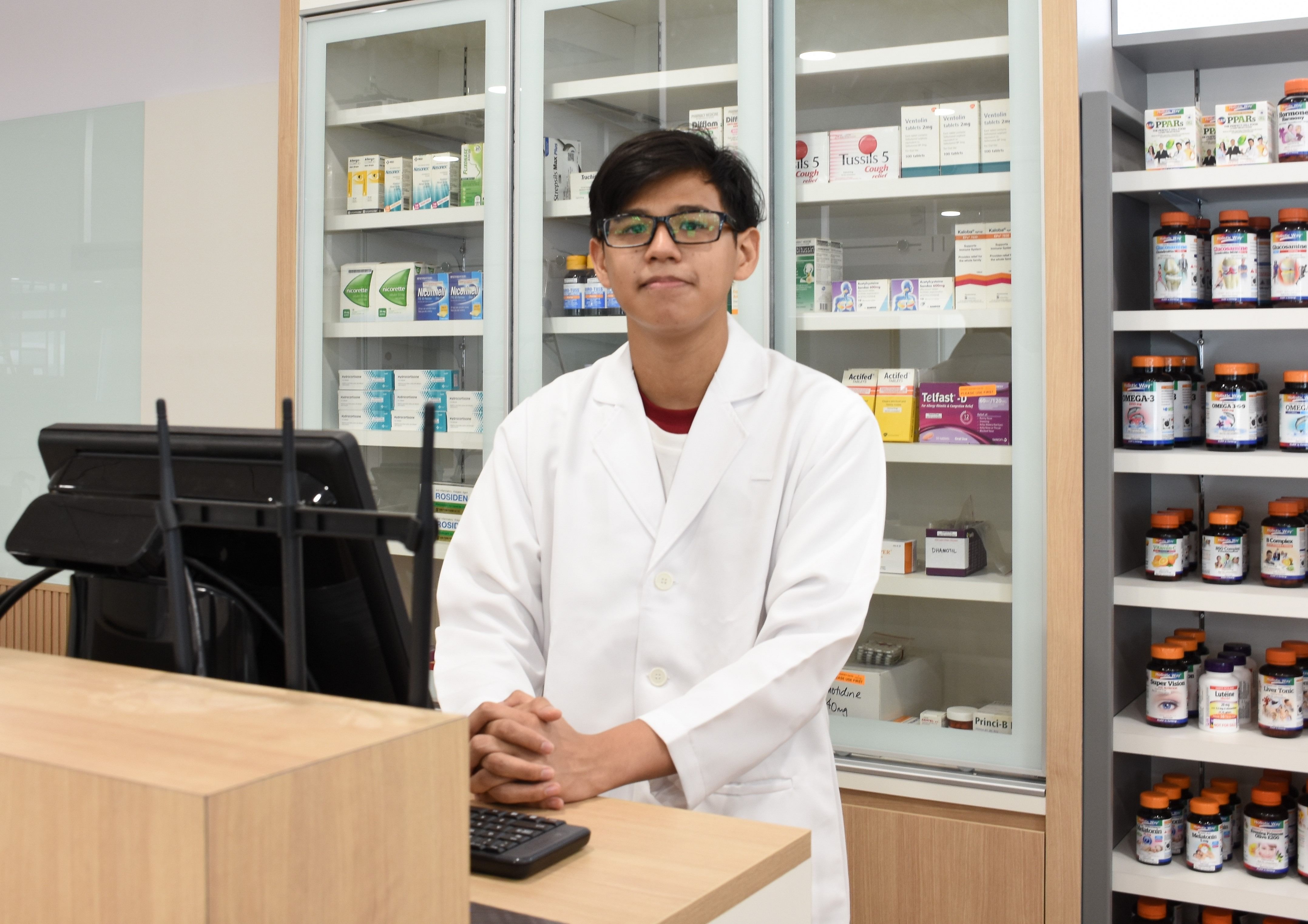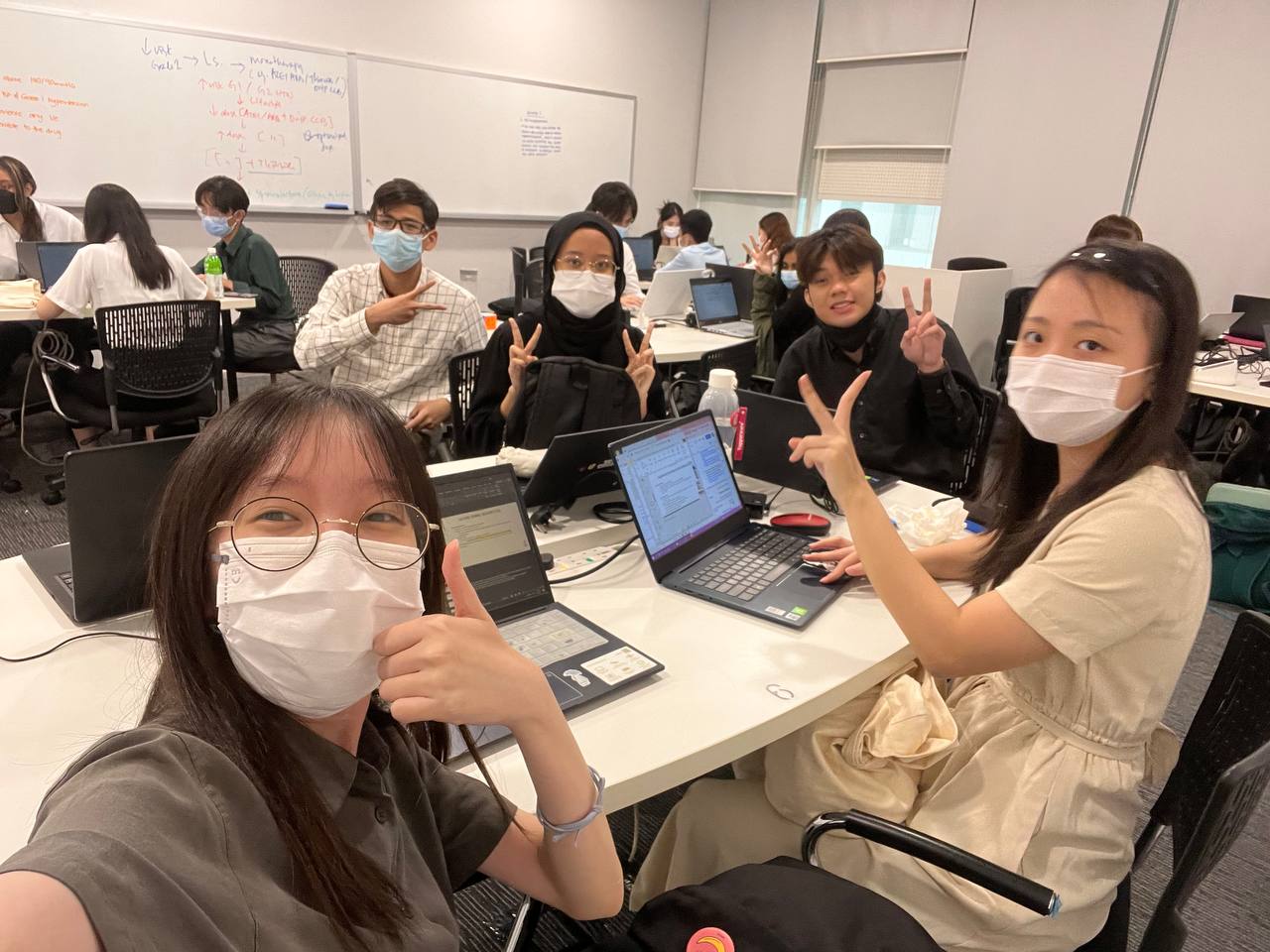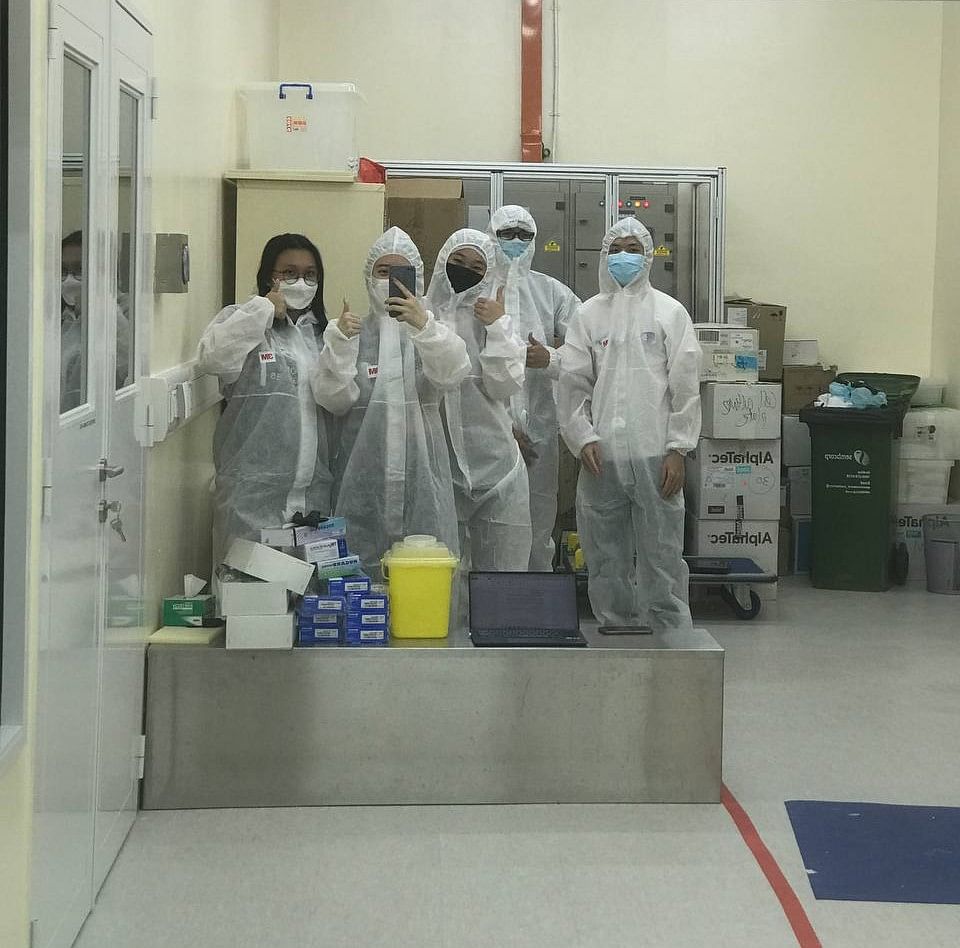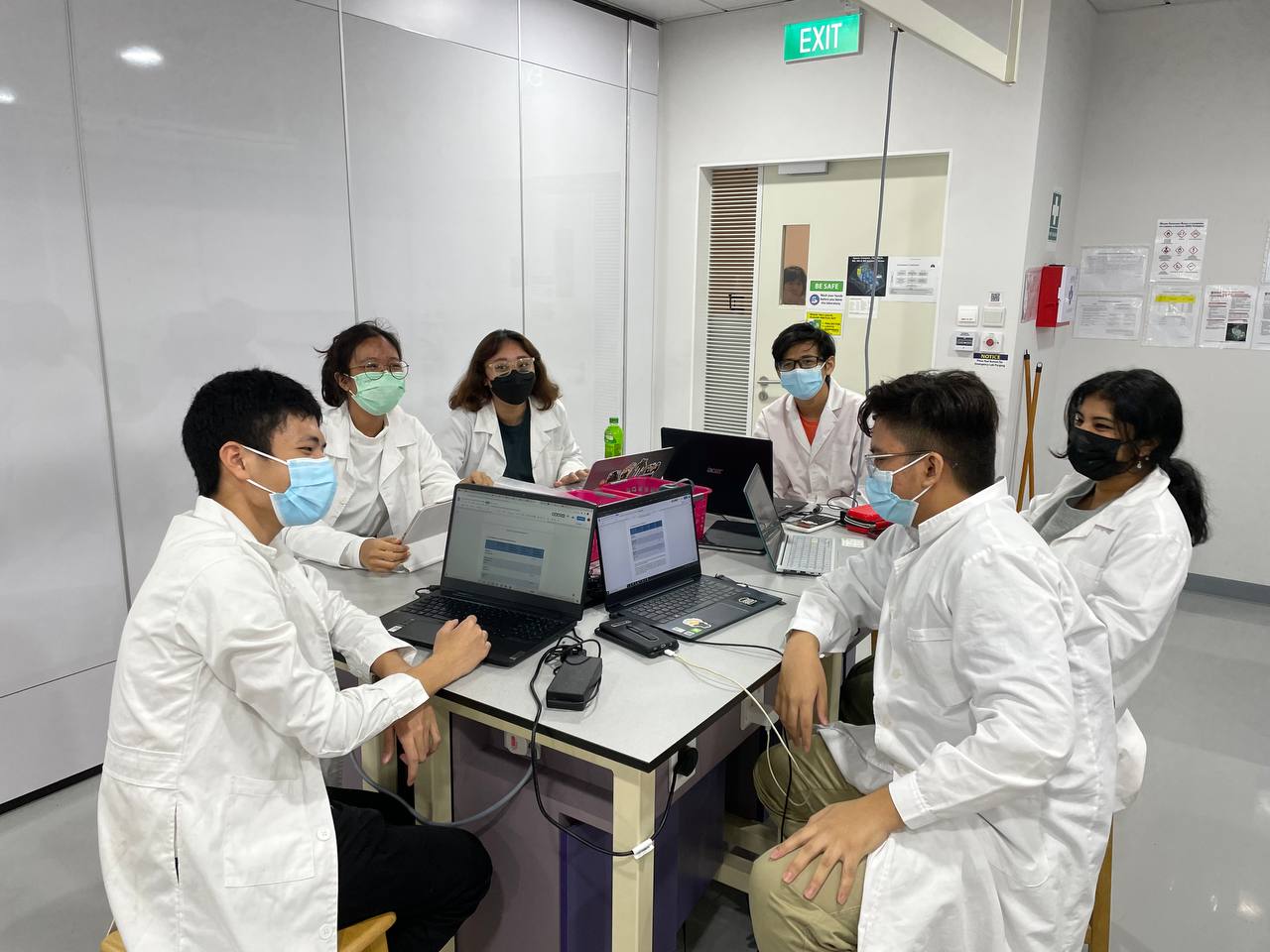BRANDED CONTENT
Work ready at 18: How poly student gets to jump-start his pharmacist career
The on-site apprenticeship, career counselling and mentoring programme at Republic Polytechnic are preparing him for his first placement in healthcare

For Year 2 pharmaceutical science student Azmie Haji Azan, Republic Polytechnic's modules and environment are preparing him well for his first internship in April 2023. PHOTO: REPUBLIC POLYTECHNIC
Follow topic:
Growing up, Azmie Haji Azan was a shy boy. It was only after he entered polytechnic that he emerged from his shell.
Azmie graduated with a single-digit O level score, and had several options for his future. But Republic Polytechnic (RP) was one of his top choices because of its new facilities, differentiated style of teaching, and nurturing community.
Having always been interested in science, pharmacy was a way to make theory practical, through the development of drugs.
“I wanted to develop and manufacture new drugs to help people,” Azmie says.
It turns out to be one of the best decisions he has made, transforming his introverted self to someone who’s more outgoing.
“I’ve really enjoyed my time here. In secondary school, I would do things myself. But now, during breaks, we go down together. Sit together. Even go home together,” says the 18-year-old.
Today, if you see Azmie at RP, it’s almost as if you were looking at a different person.
The Year 2 pharmaceutical science student regularly presents his answers to class.
This transformation is part of the intentional design of classes to help students be more confident.
Inside the classroom
In his classes, Azmie was put in situations where he had to work regularly with other students.
For instance, as part of the Pharmacotherapy and Pharmacy Practice module, students like Azmie have to work in teams to come up with the best recommendations for prescription drug-related case studies. There would then be a role-playing approach in presenting the solutions, with the lecturers acting as doctors or patients to build the essential communication skills needed by the students for their careers.
Working in teams and learning in groups take centrestage in the RP learning journey. Hence, the institution takes a more collaborative approach to its learning and teaching style that teaches students to become resourceful and be critical thinkers through social interaction.
This approach helps students to be confident in presenting their views in class, promoting active participation.
Dr Dawn Er, the Programme Chair of the Diploma in Pharmaceutical Science course, says students are taught “through real-world problems encountered in the industry, to allow students the opportunity to think critically, analyse problems and develop innovative solutions collaboratively”.

She explains that this approach is known as the Problem-Based Learning (PBL) approach and the school uses it to plan and design their lessons.
Students form groups to brainstorm solutions – pushing them out of their comfort zones – and have to later present their solutions in front of the class.
In the healthcare industry that Azmie and his classmates would one day enter, the ability to collaborate across teams will be crucial.
For example, in a treatment plan for an elderly woman who has suffered a stroke, pharmacists will need to work with doctors to determine a suitable prescription and dosage for the patient. They might work with community care nurses to support the patient in taking her medication. Collaboration with physiotherapists, especially if the medication causes side effects like dizziness, will ensure that the right rehabilitative exercises are used.
This cross-functional teamwork calls for the students to be confident about their recommendations, and develop finesse in working with different stakeholders, key skills that RP intentionally trains its students for.
RP also maps its teaching according to the SkillsFuture framework, ensuring that students are equipped with a broad base of knowledge, and a set of recognised core skills which will be valued in the workplace.
RP also maps its teaching according to the SkillsFuture framework, ensuring that students are equipped with a broad base of knowledge, and a set of recognised core skills which will be valued in the workplace.
The step-up from school to work, though, is first made in the classroom.

A mentor for every student
It is why lecturers make an effort to call on quieter students in class, and individually coach them to be more confident.
Knowing the varied educational backgrounds students come from, Dr Er makes it a point to have one-to-ones for those with special educational needs to make necessary adjustments and facilitate a conducive learning environment.
“RP has a nurturing culture. Lecturers go the extra mile to support students in their learning. This includes making adjustments in the way we deliver lessons in class, or availing many different avenues for students to demonstrate their views and learning,” says Dr Er.
Creating nurturing relationships with students encourages them to share their struggles, which is necessary for personal growth, she adds.
Furthermore, every student at RP is assigned a mentor during enrolment. Students are encouraged to contact their mentors about any issue, no matter how trivial it may seem.
Creating nurturing relationships with students encourages them to share their struggles, which is necessary for personal growth, she adds.
Furthermore, every student at RP is assigned a mentor during enrolment. Students are encouraged to contact their mentors about any issue, no matter how trivial it may seem.
Once, Azmie was unclear about what formal attire meant for a school event he was attending. His mentor got him to send a picture of what he was going to wear to assure him that the attire was appropriate.
These small details ease the students’ apprehension about entering the workforce and smoothen the transition between school and work.
Bridging the gap between school and work

To prepare students for the working world, RP ensures that its teaching facilities mimic what students will see in their workplaces through what it calls “cognitive apprenticeship”.
The RP Teaching Dispensary and the supplementary RP-Unity Teaching Retail Pharmacy are prime examples. These cutting-edge facilities are equipped with telepharmacy capability and pharmacy software.
The RP Teaching Dispensary and the supplementary RP-Unity Teaching Retail Pharmacy are prime examples. These cutting-edge facilities are equipped with telepharmacy capability and pharmacy software.
There, students engage in role-playing and hone their dispensing skills. Dr Er says: “They experience how to prepare medications for patients from the real drugs housed in these facilities, making product recommendations from those found at the teaching retail pharmacy floor.”
In a rapidly changing world, what one learns in school may be made obsolete by the time one enters the workforce.
But RP prepares its students for the world by helping them understand their strengths and weaknesses.
For example, with the Education and Career Guidance programme, they help students through strengths-profiling assessments and dedicated career counselling. Students will be posed questions like “What career should I pursue?”.
Without a doubt, the transformation of Azmie has not been by chance, but is part of an intentional, instructional approach designed to bring the best out of every student, regardless of their starting point.
In April 2023, Azmie will begin his first internship in healthcare. He says, “I’m excited. RP has given me everything I need to succeed.”
RP is offering two new courses: Diploma in Tourism Management with Technology (R64) and Common Arts, Design and Media Programme (R65). Find more information about RP’s courses here.
You can also attend RP’s upcoming Open House from Jan 5 to 7, 2023 to learn more about RP’s courses, culture, activities and opportunities. Click here to sign up.


